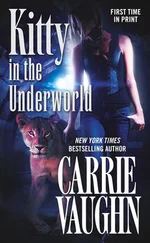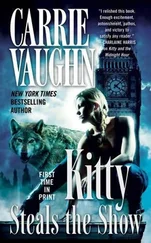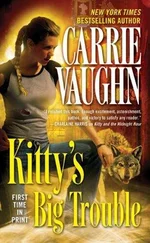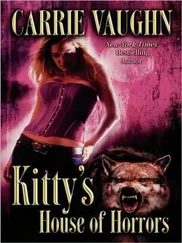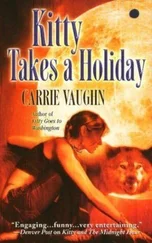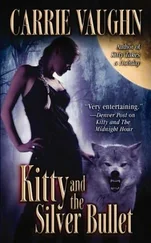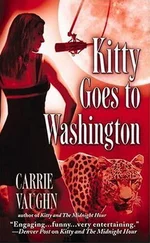King Darius eyed him as the advisers whispered around him.
“They make themselves look bad. I don’t have to do anything.”
“They’re jealous of your wisdom.”
He shook his head. “It is not my wisdom, but God’s.”
“You always say that.” She touched his arm. “Have supper with me at the bazaar tonight.”
“I’ll be there.”
She drifted away, her footsteps ringing.
* * *
Pavilions and awnings in a hundred colors spread across the marketplace. Beneath them, merchants sold wares from across the empire: the gold of Egypt, the silk of the far eastern lands, horses from Anatolia, coral and pearls from the coast. A dozen different languages clashed and made music, cheers went up as an acrobat finished a series of backflips in the plaza, a camel brayed across the street. Meat roasted and wine spilled, turning the air heady.
This was truly the most wondrous city in the world. This was truly a wondrous time to be alive. This was the height of civilization. Except for the cruelty of empires and conquerors.
The sensations would have overwhelmed Daniel, if he hadn’t been used to them. He could hear conversations a block away, smell a dozen different scents on the air. He’d grown used to the complex barrage of information. It was a part of the curse he’d learned to use.
On the steps leading from one level of houses to the next, he leaned against the wall, eating a handful of dates one by one. He smiled when he saw Suza running toward him, weaving around market crowds and crates of pottery.
He might have guessed Suza was a dancer, even when she wore a loose-fitting tunic the color of dust and hid her hair and striking face under a wrap and veil. She moved with the grace of mist rising from a pool of water, effortless and peaceful.
In the same movement, she stopped and sat beside him. “You’ve started without me.”
“Nonsense. I was saving this one for you,” he said, and offered her the last date. She laughed.
They wandered the marketplace in search of delicacies. Suza bought her supper from a woman who roasted spiced pork on a skewer. She offered some to Daniel, who shook his head.
“There’s a booth on the next row that’s run by a Hebrew family. I’ll find food there.”
She smirked. “You and your Hebrew law. You understand, I had to offer you some out of politeness, even though I knew you wouldn’t accept.”
“I know.”
They rested at a terrace overlooking the marketplace and watched the sun set over the palace gardens. Suza leaned on the wall, her mood turning somber.
“The full moon rises tomorrow.”
And they’d been having such a lovely evening. “Do you think I don’t know that?”
“Come with me. I hate for you to be alone on those nights.”
“I will stay at home and pray, like always.”
“You always say you will, but you never do. You can’t, any more than the rest of us can.”
“I will pray.”
“Your devotion to your Hebrew God—it makes you both a hero and a fool. Everyone says so. You’re admired for it—but because of it you’ll never belong here.”
“I don’t belong here. I belong to my God. I trust in Him.”
“There is another tribe you belong to.”
More angrily than he intended he said, “It’s not a tribe, it’s a curse.”
She touched his cheek, a fleeting gesture that he barely felt. “I will pray for you to Ishtar. The lion is her beast. So you are hers, whether you like it or not.”
She left him. He almost called after her, wanting to explain, to make her understand. But he remained silent.
* * *
Persia, Babylon before it, venerable Egypt, and all the kingdoms in the world were empires built on false idols. But what glorious idols.
Bulls with wings and the heads of men, full-bearded and wearing tall headdresses. Human bodies with the heads of cats and jackals, cows and ibis. And lions. Lions with the heads of men. Powerful, animal bodies governed by human reason. They recalled a time when men and animals lived more closely than they did now, when men were known to run as animals in the wilderness and each knew the other’s language. Those times were gone, but signs of them lingered.
Some of the offspring, the spawn of mortals and these animal gods, beings who were both and neither, lingered.
The Ishtar Gate opened north from the palace to the road outside the city. Tall enough to block out the sun, the walls, glazed blue and gleaming, marked the Processional Way, wide enough for a pair of chariots to travel abreast. Along the walls, gold lions prowled on blue tiles, row after row of them.
At twilight, Daniel had every intention of staying in his room and praying to God for protection, for self-control, for freedom from the curse. At first dark, but before the full moon had risen, he was walking past the lions stalking around the walls, through the Ishtar Gate and out of the city. Suza was waiting for him.
“I knew you’d come,” she said, falling into step beside him.
They did not speak for the next two hours as they walked away from the city to a forest near the Euphrates River. Smells of the city—cooking and crowds—gave way to hot winds and rich vegetation, alive and rotting. They took a wild path that disappeared in a ravine near a village, so they would not be followed. Others came. Daniel recognized some: a palace guard, a priest of Marduk, a prostitute from the bazaar. Those were other lives. Here, those roles meant nothing. Here was the place to run wild.
By not exposing their identities or this place, they ensured that they would be able to run in safety when their beasts broke free on full-moon nights. In the city, they kept each other’s secret; they were part of the same tribe of the cursed.
Some relished this time. The palace guard stripped off his tunic and turned to the moon, low on the horizon. His face, awash in silver light, grew longer, a snout formed where his mouth had been, and sharp fangs emerged. Before their eyes he became a wolf. With a gleeful bark, he ran away, claws digging into the earth.
Let me go, set me free —a beast writhed inside Daniel, clawing and scratching to get out.
He shut his eyes. “I hate this,” he said, gritting his teeth.
“Fighting it makes it worse,” said Suza. She pulled her tunic over her head and dropped it. A sheen of brindled fur was growing on her naked skin.
Around them writhed half men, half beasts, the images of a dozen false idols.
Daniel dropped to his knees.
“Oh Lord my God, I am Your servant, and by Your power I bear this burden. By Your will I carry this curse. By Your mercy I do not fear. Oh God. Help me bear this burden.”
Where Suza had been, a leopard stood, stretching her body, flicking her long tail. She jumped, kicking her feet as if for joy, graceful as a dancer. Then she ran.
Bones melting to a different form, skin stretching, a coat of tawny fur sprouting—Suza was right, fighting it made it worse. But he fought. Every month, every full moon, he fought.
And lost. He changed. His lion’s roar echoed in the night.
* * *
When folk of the city heard the howls of creatures in the dark, they huddled in their houses, safe in their tribes, and prayed to their animal-shaped gods for protection. If the doors stayed barred and the fires stayed lit, they had faith their gods would protect them. People prayed, because it made them feel safe.
The beasts hunted, then returned to the oasis to sleep.
Daniel started from a nightmare, his eyes growing wide all at once, his breathing fast and panicked. There had been blood. He could taste it. Gazelle. He would have to purify himself after this ordeal and pray for forgiveness.
Читать дальше

